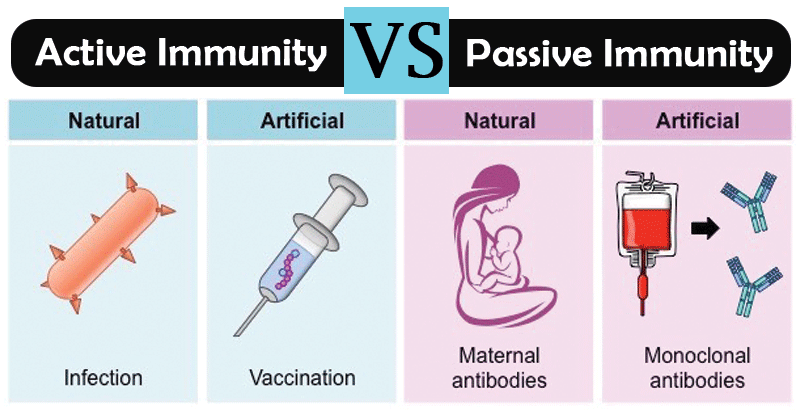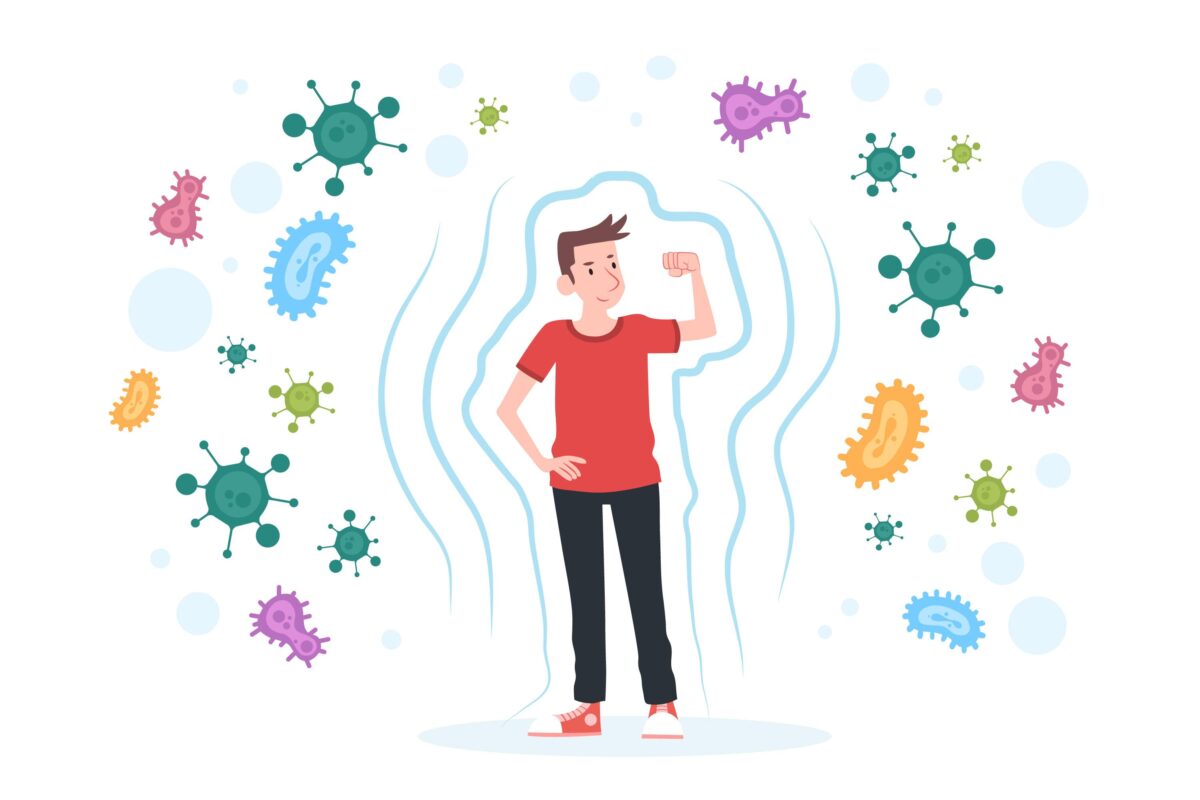Definition of immunity is the body’s ability to protect itself from a foreign body. We all read this in school. With the current pandemic and associated notices there are certain new terms that are popping up. Like Active vs Passive Immunity. So what is active immunity and passive immunity, what are the differences, And which one of Active Immunity or Passive Immunity protects you against COVID-19?
What is Active Immunity?
Active Immunity is the body’s response to a pathogen after your body is exposed to it. When your body is exposed to a ‘novel’ disease agent it starts to create antibodies specific to the pathogen. These antibodies are very specialised and work only against a certain type of disease. Meaning if you are exposed to one strain of a virus and have antibodies against it, you still risk getting infected with another strain of the virus. This is why we have no effective one-shot vaccine against cold and flu.
When your antibodies encounter a pathogen, they save its signature in a ‘memory’ of sorts. These memories can persist for almost a decade and would provide lasting protection against this specific kind of disease. This method of immunity takes weeks to develop but can last a lifetime.
Active immunity can develop in two ways:
Natural Active Immunity
When someone is fully infected by a disease, their body forms ‘natural immunity’ towards it. For example, if you get Chicken Pox once it is very unlikely that you will get it again since your body develops the antibodies necessary to fight it off. This process can not be rushed or accelerated and takes time to start providing you protection against a disease. However, you can reduce the burden on your body in producing these antigens by taking appropriate supplements. Immunity boosting supplements have been found to be effective at maintaining a better immune response rate.
Vaccine-induced immunity
Vaccine Induced immunity works very similar to natural immunity but in this case your body doesn’t get fully infected by the original disease. Instead via vaccine you are given an alternate or a passive strain of an existing disease. Your body develops antibodies to the induced strain but the same antibodies also work against the disease for which the vaccine was produced.

What is Passive Immunity
Passive Immunity is protection form a disease using antibodies created outside of one’s own body. Compared to active immunity, passive immunity does not require infection, starts working immediately, and doesn’t last very long.
Much like active immunity however, Passive Immunity can be natural or induced.
Natural or Maternal Passive Immunity
When a baby is in mother’s womb, they are protected from infections by the antibodies of their mother. Mother’s antibodies are passed through the placenta to the baby’s body. After they are born, for a few months they receive continued protection with Mother’s antibodies passed through the milk.
Artificial or Induced Passive Immunity
Antibodies from a different person or animal can be extracted and injected into someone to induce a fast acting but short-lasting immunity. It is often used for very sick patients or patients with compromised immune system. An example can be how serum from recovered COVID-19 patients is being used to treat other very sick patients. This process starts helping fast as the antibodies are alive and already available as compared to active immunity which takes weeks to develop. However passive immunity lasts weeks or months and does not provide continued protection.
